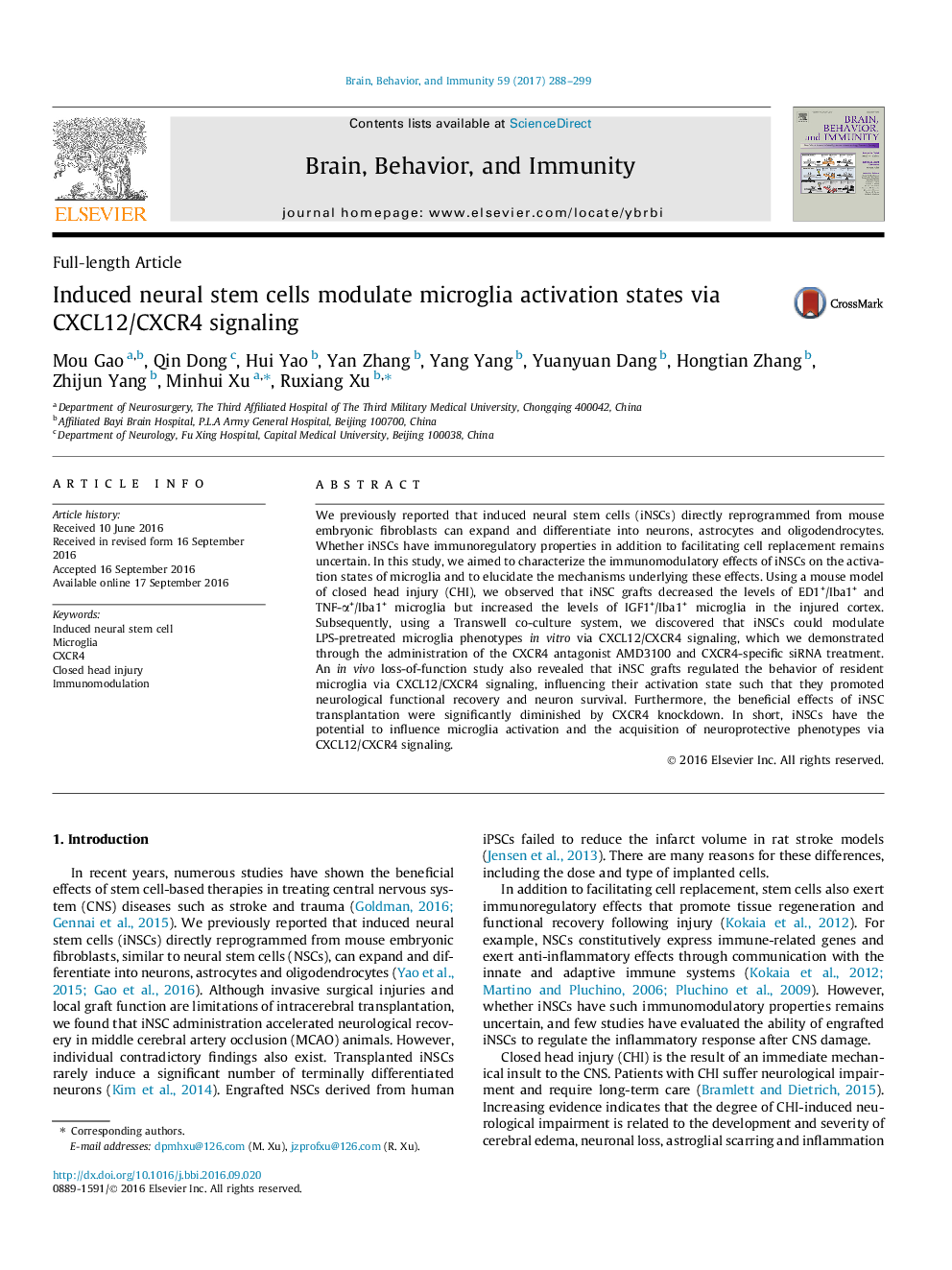| Article ID | Journal | Published Year | Pages | File Type |
|---|---|---|---|---|
| 5040948 | Brain, Behavior, and Immunity | 2017 | 12 Pages |
â¢INSCs affect microglia activation and the acquisition of neuroprotective phenotypes.â¢INSCs modulate microglia phenotypes via CXCL12/CXCR4 signaling.â¢INSCs promote neurological functional recovery in CHI mice.â¢INSCs reduce cerebral edema and cell death in CHI mice.â¢INSCs influence neuronal survival and reactive astrogliosis in CHI mice.
We previously reported that induced neural stem cells (iNSCs) directly reprogrammed from mouse embryonic fibroblasts can expand and differentiate into neurons, astrocytes and oligodendrocytes. Whether iNSCs have immunoregulatory properties in addition to facilitating cell replacement remains uncertain. In this study, we aimed to characterize the immunomodulatory effects of iNSCs on the activation states of microglia and to elucidate the mechanisms underlying these effects. Using a mouse model of closed head injury (CHI), we observed that iNSC grafts decreased the levels of ED1+/Iba1+ and TNF-α+/Iba1+ microglia but increased the levels of IGF1+/Iba1+ microglia in the injured cortex. Subsequently, using a Transwell co-culture system, we discovered that iNSCs could modulate LPS-pretreated microglia phenotypes in vitro via CXCL12/CXCR4 signaling, which we demonstrated through the administration of the CXCR4 antagonist AMD3100 and CXCR4-specific siRNA treatment. An in vivo loss-of-function study also revealed that iNSC grafts regulated the behavior of resident microglia via CXCL12/CXCR4 signaling, influencing their activation state such that they promoted neurological functional recovery and neuron survival. Furthermore, the beneficial effects of iNSC transplantation were significantly diminished by CXCR4 knockdown. In short, iNSCs have the potential to influence microglia activation and the acquisition of neuroprotective phenotypes via CXCL12/CXCR4 signaling.
